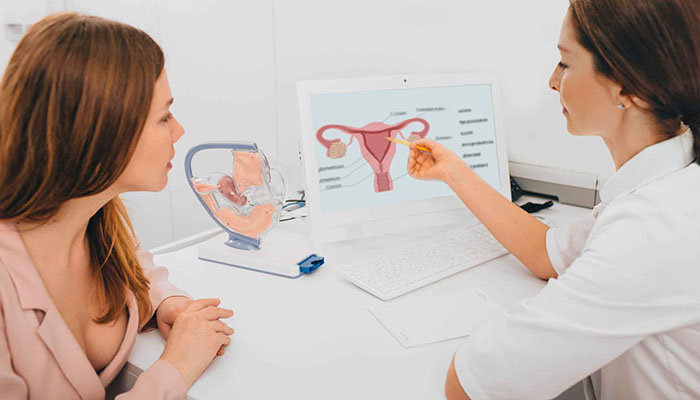
Oophorectomy: What It Is and Why It’s Done
Oophorectomy is the removal of one or both ovaries. The ovaries are the organs that produce hormones and contain eggs. A unilateral oophorectomy removes one ovary, while a bilateral oophorectomy removes both. Oophorectomy is a surgical procedure that may be necessary for women who have cancer, endometriosis, or other health problems.
Why Might Someone Need an Oophorectomy?
The most common reason for a woman to remove her ovaries is to treat or prevent cancer. Removing both ovaries can prevent ovarian cancer if the patient has other risk factors, such as a family history. Women who possess BRCA1 or BRCA2 genetic mutations are most likely to develop ovarian cancer. Thus, these women are more likely to undergo oophorectomies as preventative measures.
If someone has been diagnosed with ovarian cancer, a single or double oophorectomy may be part of the treatment plan, along with chemotherapy. Other conditions that may lead to oophorectomy include endometriosis, pelvic inflammatory disease, and ovarian cysts or abscesses. A doctor may also recommend oophorectomy in a case of breast cancer, to remove the source of estrogen.
What to Expect During an Oophorectomy
Oophorectomy can be either an open abdominal or laparoscopic surgery. In the first kind, the surgeon enters through the abdomen, carefully separating the abdominal muscles to access the ovaries. The surgeon will then remove one or both ovaries and close the incision site. During laparoscopic surgery, the surgeon inserts a thin instrument into a small incision near the naval. The surgeon uses a tiny camera to navigate and remove the ovaries. Oftentimes, a surgeon completes an oophorectomy along with the removal of other organs, such as the uterus or fallopian tubes.
Risks and Side Effects of Oophorectomy
Most oophorectomies require two to three weeks of recovery time. The patient will likely need someone to help with wound care and activities in the days following the procedure. Most patients stay one to two days in the hospital. Serious complications following oophorectomy are rare, but can include infection, nausea and vomiting, trouble urinating, abdominal pain, mood swings, and depression. Women who undergo bilateral oophorectomies will be unable to become pregnant.
Removing both ovaries before the age of menopause can result in changes to hormones. It can reduce the symptoms of menopause. Patients may require hormone treatments following oophorectomy. Replacement hormones can help level the patient’s mood and reduce other symptoms. Not all women, however, are good candidates for these therapies. Patients who are obese, diabetic, and who smoke are most likely to experience complications post oophorectomy. Oophorectomy can be a life-saving procedure in many cases.
